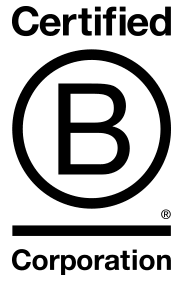Trust – key to all business relationships
The older I become, the more I think that trust is the key of all relationships – business or otherwise. As this post is related to business I will restrict my thoughts to the business arena here! Someone I know works in a national account position for a large multi-national company and looks after some of their prestigious accounts such as Tesco. His role is partly office-based but also out of the office seeing customers. Bizarrely, even if he has a meeting away from the office, he must go into the office first to sign in for work, which requires him travelling 20 miles in the wrong direction to most of his meetings. What on earth is going on here? Not only is this horrible inefficient and bad for the planet, but also implies a complete lack of trust by the employer to the employee.
Trust is absolutely key to the employer-employee relationship. Where trust is implicit in that relationship, then employees are given more responsibility and responds with more productivity. Not only that but they stop behaving as just an employee but as if they own the business. Twice people have paid the ultimate compliment to people who worked for me and have assumed that they must be part of my family in some way as they cared so much. To have your team behaving and acting as if it were their own company is the destination of those companies that have invested and trust in their people. Of course, in the more forward-thinking companies they may be part of a share-ownership scheme or at least take home a share of the profits. If they just have the mentality of doing their hours, getting paid and then really living life away from work, then they will never perform their best whilst at work.
Trust also comes into the customer-supplier relationship, in which when they are working well, both parties are invested in the relationship, because they are both winning and making some profit. When this no longer is the case for one or other party, the relationship breaks down. I ran across an example like this last month. A national chain of garden centres had been offered permanent promotional pricing of 25% discount on a well-known speciality drinks brand all year round. What the distributor was doing was stock-piling pallets of presses and cordials when they were on promotion and not buying anything from the supplier in any normal month. Generally, suppliers do not make any margin on promotional pricing, but use them to drive distribution for the non-promotional months when they make profit. A wholesaler only buying products whilst on promotion clearly will not be popular and the trust coefficient drops considerably. Of course, the drinks producer in question is at fault too for allowing this behaviour and so is the customer for accepting pricing like this when they must know all is not in order behind the scenes. But some wouldn’t blame them if they believe making money is all business is about!
Since writing the above paragraphs, I watched #dragonsden where we saw a new brand Tuk Tuk Chai struggle to admit that they were selling their product to Sainsbury’s at a lower price than it cost them to make it – no wonder Sainsbury’s had told them not to admit this on live television! Cotswold Fayre actually looked at this brand last year and we couldn’t get the numbers to work so that the retail price was reasonable – we certainly weren’t going to suggest that we bought the product for less than cost. Clearly, Sainsbury’s don’t operate in the same ethical sphere!
For trust to be in place in all relationships, there needs to be transparency, and lack of transparency is often where doubt creeps in. Where there is doubt, there can be little trust, so where you feel like trusting relationships have broken down ask yourself how much honesty and transparency you have exhibited in that relationship.














